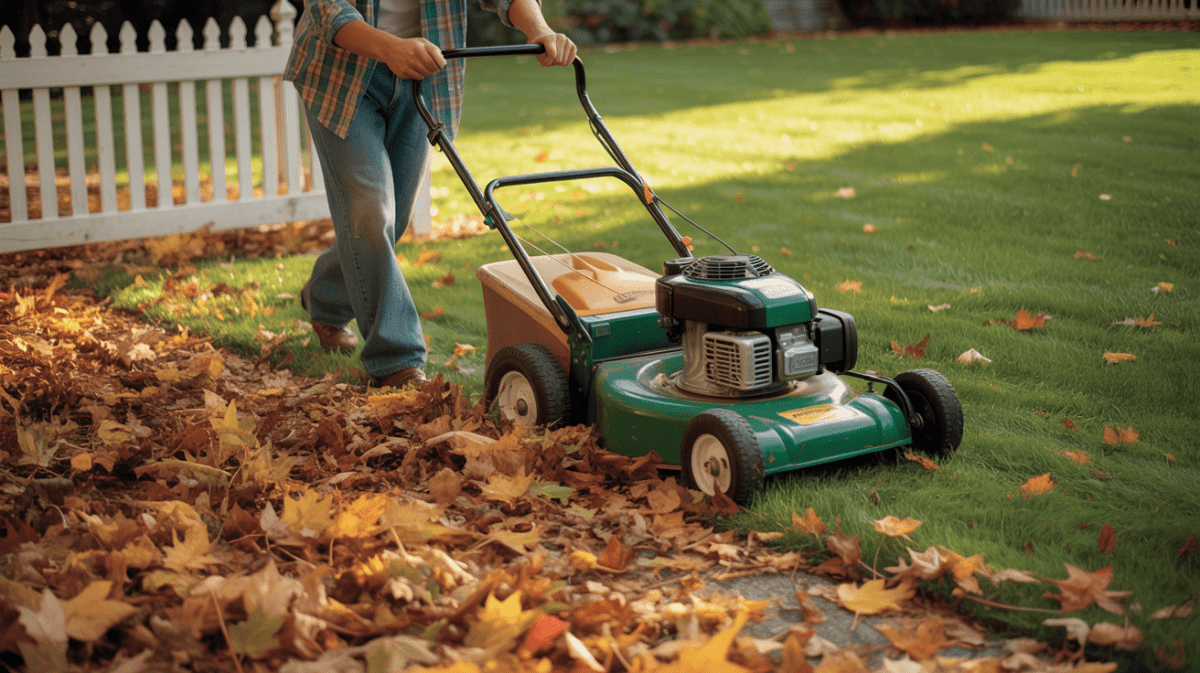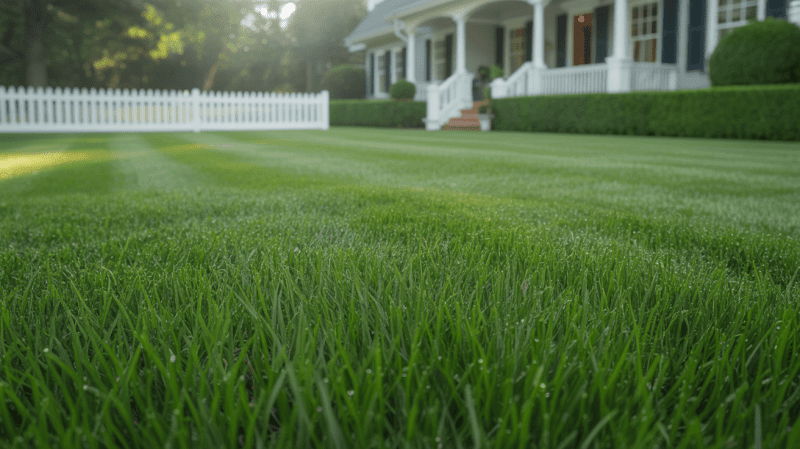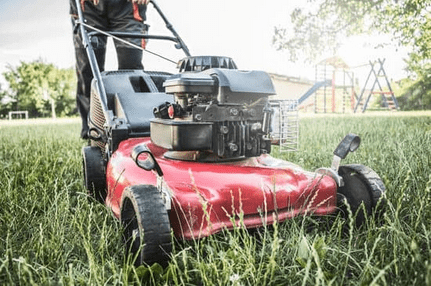How to Mulch Your Leaves Instead of Raking Them:

I used to dread fall cleanup every year. The endless raking, bagging, and dragging leaves to the curb felt like a seasonal punishment. Then I discovered a game-changing approach that transformed my entire autumn routine.
Research from Michigan State University shows that mulching leaves with your lawn mower creates natural compost that enriches your soil. This eco-friendly method saves you hours of back-breaking work while giving your lawn valuable nutrients.
The technique is surprisingly simple. Remove your grass catcher and mow over fallen leaves until they're dime-sized pieces. Make several passes until you can see about half an inch of grass through the mulched layer.
Microbes and worms quickly recycle these leaf bits into rich organic matter. Adding a nitrogen-rich fertilizer like Scotts® Turf Builder® Winterguard® Fall Lawn Food accelerates the process even further.
This natural approach to lawn care turns what was once a chore into a beneficial gardening practice. You'll save time, money, and help your yard thrive through the winter months.
Why You Should Mulch Leaves Instead of Raking Them
https://www.youtube.com/watch?v=jHVTWtfSEdg
I used to dread fall cleanup until I discovered the magic of mulching. Mulching offers many advantages that changed my view on autumn yard work.
The Environmental Benefits of Leaf Mulching
When I mulch my leaves, I feel good knowing I'm making an eco-friendly choice. Traditional raking often leads to leaves ending up in landfills, where they contribute to methane gas production. According to EPA data, yard trimmings make up about 7% of municipal solid waste, with leaves accounting for nearly a quarter of that.
Burning leaves might seem like another option, but it releases carbon and other pollutants into the air. Mulching keeps everything right in your yard where it belongs. This natural recycling process represents true eco-friendly leaf management at its finest.
"Leaf mulching returns valuable nutrients to the soil while reducing waste management costs for communities."
How Mulching Saves You Time and Energy
The time savings alone make mulching worth it for me. Instead of spending hours raking, bagging, and hauling leaves, I simply mow over them during my regular lawn maintenance. This efficiency represents one of the biggest advantages in the mulching vs raking leaves debate.
There's also a health benefit to consider. The Cleveland Clinic notes that strenuous raking can pose cardiac risks for some people, even those not accustomed to vigorous exercise. Mulching eliminates this risk while giving you back your weekends.
Here's how the time investment compares:
| Activity | Time Required | Physical Effort | Equipment Needed |
|---|---|---|---|
| Traditional Raking | 2-4 hours weekly | High | Rake, bags, truck |
| Leaf Mulching | 30-45 minutes weekly | Moderate | Mulching mower |
| Leaf Burning | 1-2 hours weekly | High | Rake, permits, safety gear |
Nutrient Benefits for Your Lawn and Garden
The leaf mulching benefits for your soil are incredible. Leaves contain about 2% nitrogen along with other valuable nutrients. When mulched, they create a natural fertilizer that feeds your grass all winter long.
University studies show that mulched leaves help suppress weeds like dandelions and crabgrass. The mulch layer blocks sunlight from reaching weed seeds while improving soil structure and moisture retention.
This natural approach to eco-friendly leaf disposal means I spend less money on commercial fertilizers and weed controls. My lawn actually looks better in spring after a season of mulching.
These reasons to mulch leaves add up to a smarter, easier approach to fall cleanup. The environmental, time-saving, and nutritional advantages make mulching the clear winner over traditional methods.
Essential Equipment for Mulching Leaves

Having the right tools is key for effective leaf mulching. Quality equipment saves time and improves lawn and garden health. Let's look at the essential gear for successful leaf mulching.
Choosing the Right Mulching Mower
Your regular lawn mower can handle leaf mulching with multiple passes. But, dedicated mulching mowers chop leaves finer. This makes them decompose faster and mix better with your grass.
Many makers offer mulching blades as upgrades for existing mowers. These blades have special designs for finer shredding. It's a cost-effective way to boost your leaf mulching techniques.
Leaf Shredders and Their Advantages
Dedicated leaf shredders are a big help for large properties or serious gardeners. Models like the Amerind-MacKissick attached to tractors make confetti-like mulch. This is perfect for garden beds.
These machines make the ideal mulch texture for mulching leaves for soil health. The fine shreds break down quickly, adding nutrients to your soil. They're great for handling big leaf volumes.
Remember these leaf shredding tips: always wear safety glasses and work with dry leaves. Wet leaves can clog even the best equipment.
Optional but Helpful Accessories
While not essential, some accessories make mulching smoother. Leaf tarps or dump carts help gather and transport leaves efficiently. A sturdy tarp is good for moving shredded leaves to garden beds.
For alternative methods, a rototiller can provide coarse shredding directly on garden beds. This works well when you've mowed first.
The right best equipment for mulching leaves depends on your property size and goals. Smaller yards might only need a mulching mower. Larger properties benefit from dedicated shredders.
Whatever tools you choose, proper shredding speeds up decomposition. It also improves how you mulch leaves lawn areas. The finer the shred, the faster nutrients return to your soil.
How to Mulch Your Leaves Instead of Raking Them: Step-by-Step Guide
Ready to turn fallen leaves into lawn gold? I've mastered leaf mulching over the years. This guide will show you how to do it from start to finish.
Preparing Your Lawn for Mulching
Timing is key for leaf mulching. I start early when leaves are dry and not too many. Dry leaves are easier to shred and won't clog your mower.
Before starting, I check my lawn for sticks or toys that could damage the mower. I also set my mower to the highest setting. This helps shred leaves better and protects my grass.
The Proper Mulching Technique
Here's how I turn leaves into nutrient-rich mulch:
- Remove the grass catcher from your mower
- Make your first pass over the leaves at normal mowing speed
- Cross over the same area in perpendicular passes
- Continue until leaves are dime-sized or smaller
- Stop when you can see about half an inch of grass through the mulch
This method works well even with thick leaves. I've mulched up to 18 inches of leaves with patience and overlapping patterns.
Timing and Frequency for Best Results
Consistency is crucial in leaf mulching. I do it weekly during fall. Regular mulching prevents overwhelming buildup and keeps my lawn neat.
Early morning is the best time for mulching. Leaves are dry from overnight, but the grass is still moist. Avoid mulching after rain when everything is wet.
For most lawns, mulching once a week is enough during heavy leaf drop. You can handle up to 6 inches of fresh leaves with each session if you use the right technique.
Troubleshooting Common Mulching Issues
Even with the best preparation, you might face some challenges. Here's how I solve common problems:
Wet leaves clogging your mower: Let them dry for a day or two before mulching. If you're in a hurry, make two quick passes instead of one thorough session.
Thick layers resisting mulching: Slow down your mowing speed and make more overlapping passes. Don't try to mulch everything in one go.
Whole leaves matting together: This often happens when leaves aren't shredded enough. Make additional passes until the pieces are smaller. For compost piles, ensure leaves are thoroughly shredded to prevent matting.
Remember, mulching leaves for soil health is great for your yard. Those shredded leaves return valuable nutrients to the soil, making your lawn healthier naturally.
Conclusion
Leaf mulching is a smart choice for my garden. It saves me from hours of hard work every fall. The leaves break down by spring, making my grass greener and healthier.
Mulching leaves helps my lawn all winter. It's a natural way to feed the earth instead of throwing leaves away. My soil gets better every year.
Starting to compost leaves might seem new, but it's worth it. My lawn looks great, I work less, and I help the planet. This simple change makes autumn cleanup a positive step for my yard's health.



